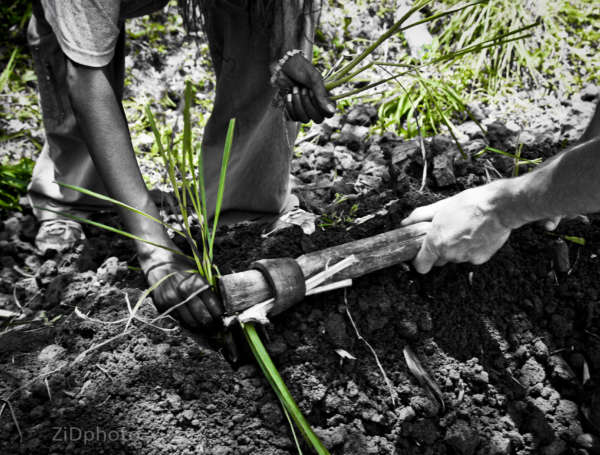
Here at Distant Relatives Eco-lodge, you’ll quickly notice we do things a little differently. But, what does it really mean to be an “eco-lodge” and why does it matter?
As owners we have always had a passion for sustainability: an idea centered around mindfully living which promotes long term social, cultural, and environmental prosperity with the future generations in mind. After studying various aspects of sustainable living in University, we were eager to apply these principles to the real world. What we have done has come from the heart, often through trial and error (perhaps more often error) and patient perseverance. In every step of building and growing Distant Relatives, we have placed as much emphasis as we can on the responsible management of all social and environmental aspects of this project. We are pleased to be certified by Ecotourism Kenya and to be represented on various sustainable online platforms.
Here is what we have done thus far
General Waste Management:
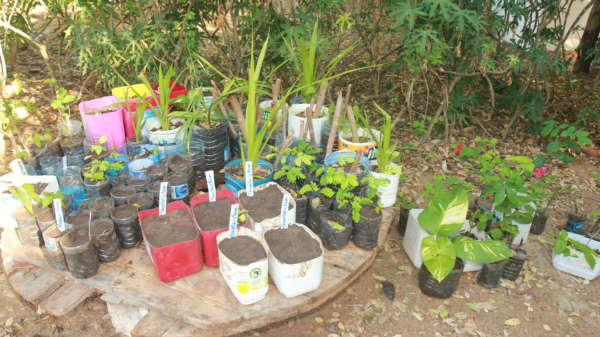
“Reduce, Reuse, and Recycle,” is the philosophy at the forefront of our approach to responsible resource and waste management. Here we take the preservation of our natural resources, landfill space, emissions, and energy usage into consideration. Our organic waste is composted or fed to our resident poultry. Our grey water (water from sinks and showers) is used for watering our gardens, and terraces. Plastic bottles and containers are re-used in the nursery or recycled. Metal is collected by scrap metal dealers who then find ways to give the metal a second life. Glass is also recycled, cut for glasses at the bar or used as art! In this way, everything we no longer use is mindfully repurposed.
Water:
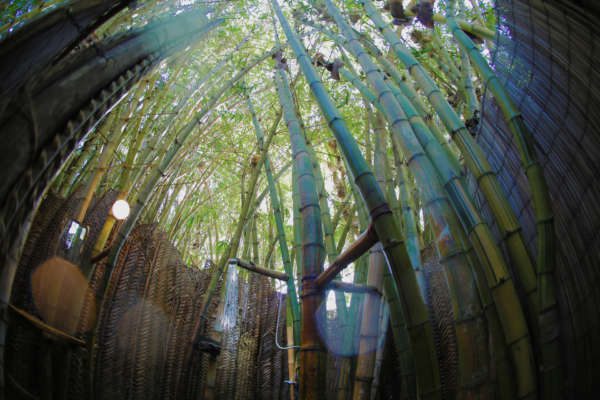
Our 500 square meter roof surface allows us to collect vast amounts of rainwater we can then use for our showers, kitchens and swimming pool. Water from showers and sinks are channeled into features known as “banana circles” where the bananas trees then soak up water and hold it furthermore with their roots. Waste water coming from our kitchen has recently been channeled through a biological filtration system called “artificial reed bed.” In this way the water is then filtered naturally by sand, reeds, and rocks and then used to irrigate our newly installed terrace gardens, our vermiculture unit, and composting area.
Furniture:
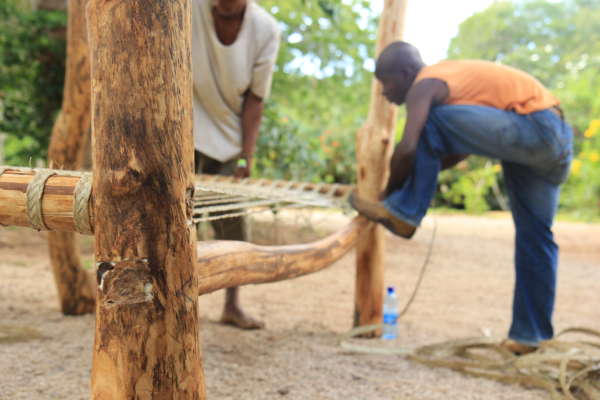
All the wood used for furniture is either up-cycled from old shattered boats, driftwood, or from non-native and/or invasive species and reassembled by local fundis (specialists).
Compost Toilets:
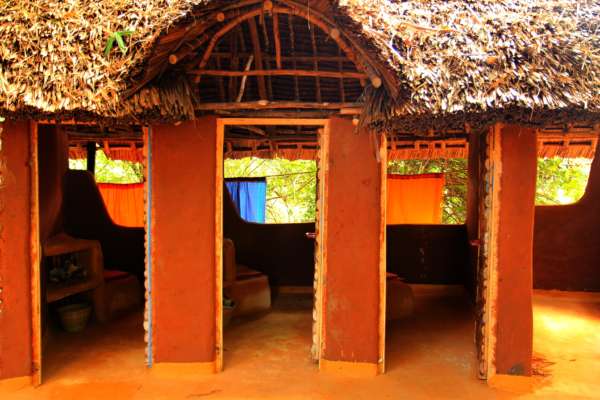
Human waste is collected, patiently composted, and turned into fertilizer. This radical approach to water conservation has allowed us to not only to dramatically cut back on water usage, but also the opportunity to build some of the most fertile soil possible. This system has proven to work amazingly well as you can see by the lush and prosperous gardens around the property.
Construction:
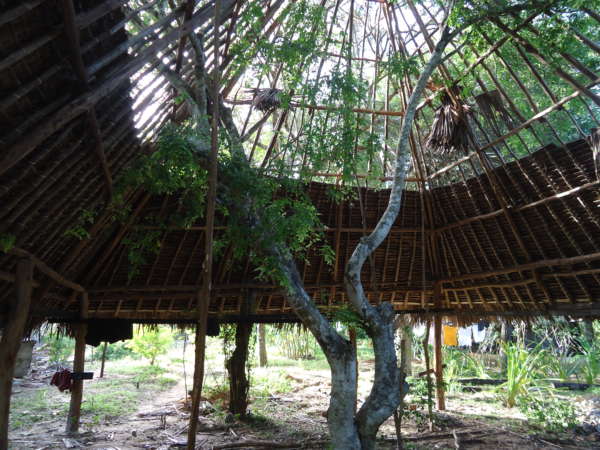
We use a combination of local and traditional Swahili designs with an “eco” twist. We have built our rooms around old-grown trees, minimized the use of cement, banned the use of mangrove wood (as beautiful as it might be), and found a million ways to use coconut tree frawns (“makuti”). All light fixtures use LED and energy-saving lighting technologies. Hundreds of glass bottles have been collected and used for our pathway light shades, and soon for glasses at the bar! We have up-cycled hundreds of car and truck tires from town and now use them for retaining walls which help prevent land erosion, and secure some of our infrastructure.
Soil improvement & pollution minimization:
Compost:
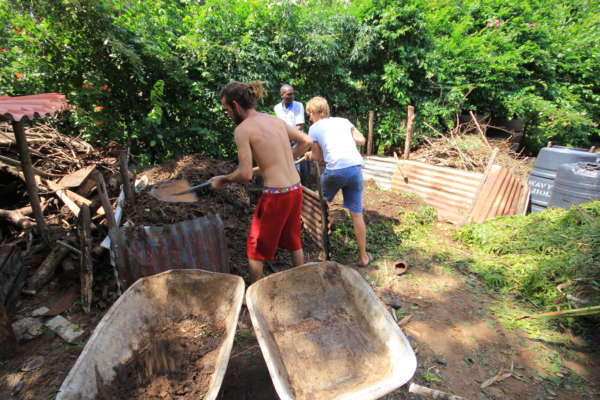
Our composting system deals main with organic food waste, scrap woods, recycled roofing material, and garden waste. This system can contains up to 2 tons of recycled and entirely reusable material! The compost is constantly improving our soil fertility and keeping mass amounts of waste out of municipal landfills, and burn piles.
Vermiculture:
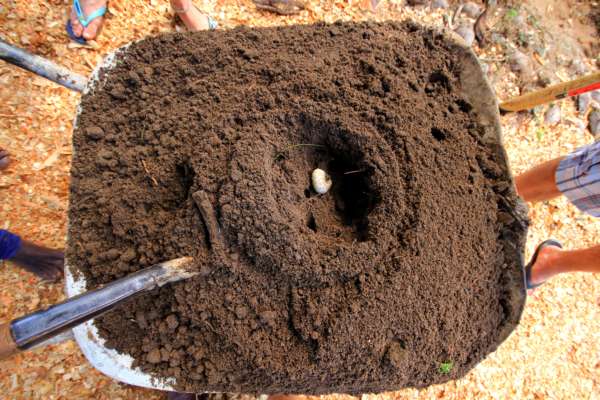
Our commercial scale worm farm feeds on a portion of our organic waste and in return we are gifted high quality vermiliquid (incredible fertilizer), and worm castings (extremely fertile soil) which we then use to aid our composting system, gardens, and tree nursery. The worms are available to the wider community and to others interested in starting their own wormery.
Erosion prevention:
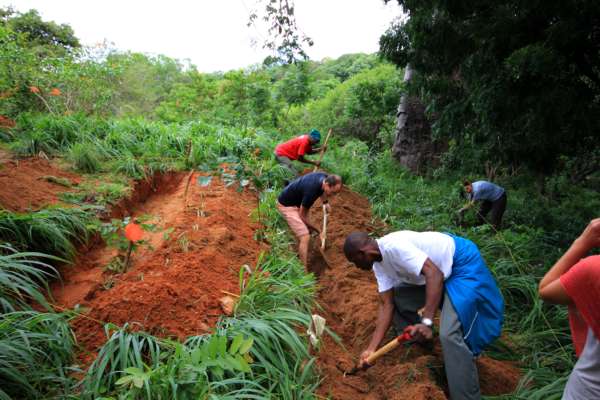
We upcycle tires from the local community and incorporate them into our landscape as erosion control mechanisms in the form of staircases, barriers, and foundations. A series of swales, shallow ditches on contour, supported by tires in this way, allow for the slow uptake of water across the landscape in times of rain.
Animals:
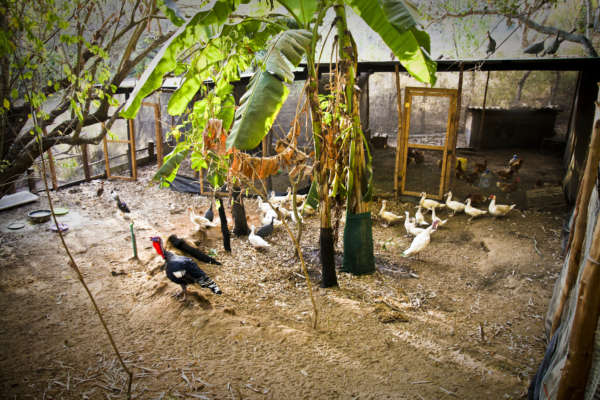
Manure from cows, chickens, ducks, pigs is consistently fed into the compost areas as well as other ornamental garden space and fruit trees scattered across the property.
Power & Eco-tech:
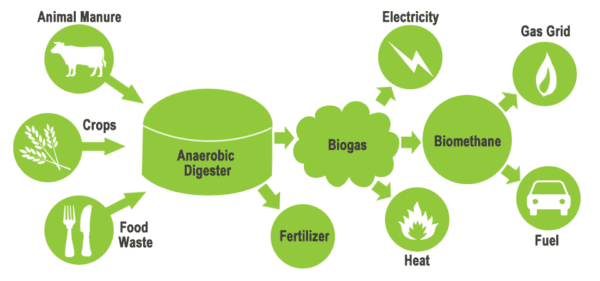
We hope to install further green technologies and systems such as a full solar power system, but they are very costly investments for which the National government offers no assistance as is the case in Europe for instance and one cannot sell power back to the grid in Kenya either… Nevertheless, we are seeking sponsors for our solar system. We would also like to start producing biogas from organic waste by the end of the year. Biogas at small house scale works extremely well – but given our power needs, mainly from our kitchen equipment, we would need a very big system. We would love to find a solution as soon as possible here, but given the costs and/or infrastructural needs, we are making progress slowly but surely.
Education:
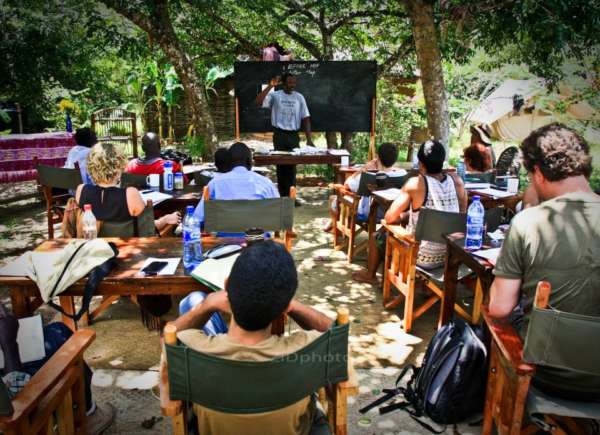
In partnership with Barefoot Soulutions we have been able to host several courses on wastewater treatment, Permaculture Design Courses, practical permaculture applications, eco-building, and more. Over the last four years more than 150 participants have be certified through an internationally recognized course syllabus with local and internationally renown instructors from the UK, USA, and Zimbabwe. By using this space as a classroom participants from different backgrounds, cultures, and continents have had the opportunity to learn together, network, and design their own resilient systems (some of which can be found on this property!)
We offer permaculture tours to local youth through school field trips as well as to any guests that are interested. We also open positions for volunteers to come learn and work along side us during certain seasons of the year. Recently we have had the privilege of putting a handful of our community members from Kilifi, Tana River, and upcountry counties through some of our courses for free or subsidized rates. We aim to support and empower the greater Kenyan communities by spreading awareness of permaculture design philosophies through these participants which can in turn empower their own local communities.
Cultural/Community Empowerment:
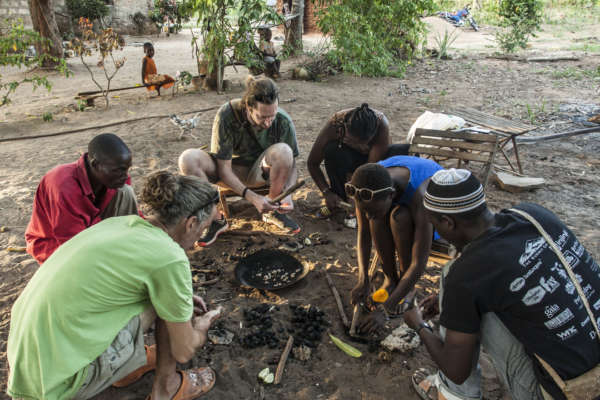
We connect our guests with locally lead touring guides and companies so as to support the neighborhood and local economy while helping our guests experience local culture. Village tours on motorcycle, village dinners with traditional cuisine, sunset sailing on local traditional boats, fishing and snorkeling are all activities easily accessible through this partnership.
